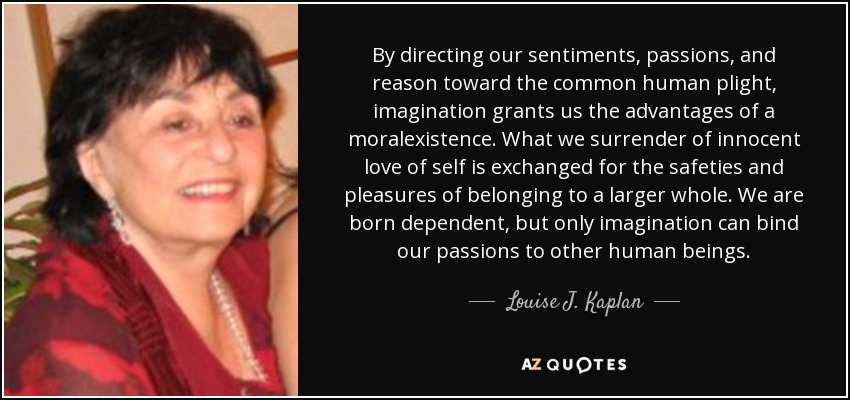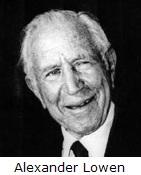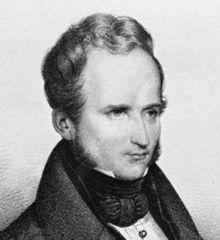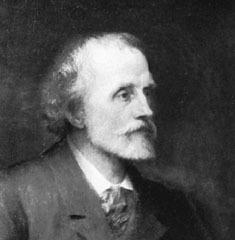Louise J. Kaplan Quotes - Page 2
Quotes about:-
-
 By directing our sentiments, passions, and reason toward the common human plight, imagination grants us the advantages of a moralexistence. What we surrender of innocent love of self is exchanged for the safeties and pleasures of belonging to a larger whole. We are born dependent, but only imagination can bind our passions to other human beings.
By directing our sentiments, passions, and reason toward the common human plight, imagination grants us the advantages of a moralexistence. What we surrender of innocent love of self is exchanged for the safeties and pleasures of belonging to a larger whole. We are born dependent, but only imagination can bind our passions to other human beings.
-
Louise J. Kaplan
- Born: November 18, 1929
- Died: January 9, 2012
- Occupation: Author
- Cite this Page: Citation





















